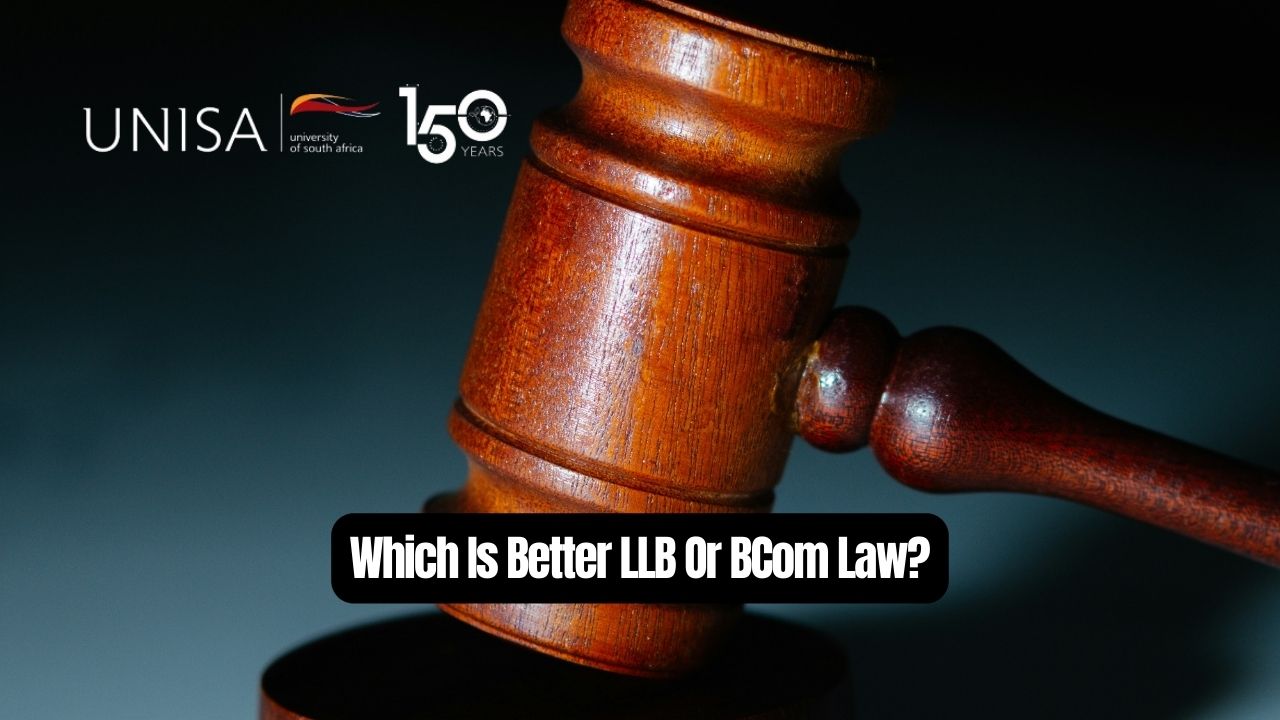Which Is Better LLB Or BCom Law? In the realm of higher education, choosing the right academic path can be a pivotal decision, particularly for those inclined towards the legal field. Among the myriad of options available, two prominent choices often stand out:
Pursuing a Bachelor of Laws (LLB) degree or opting for a Bachelor of Commerce with a specialization in Law (BCom Law). Both avenues offer unique advantages and cater to different career aspirations.
Understanding LLB
The LLB, commonly known as the Bachelor of Laws, is a specialized undergraduate degree focusing solely on legal studies. It provides a comprehensive understanding of various aspects of law, including constitutional law, criminal law, contract law, and more. As a foundational degree in the legal field, LLB programs typically offer in-depth theoretical knowledge, practical legal skills, and critical analytical abilities.
Exploring BCom Law
On the other hand, BCom Law, or Bachelor of Commerce with a specialization in Law, offers a unique blend of legal studies with a focus on commerce and business-related subjects. This interdisciplinary program integrates legal principles with aspects of commerce, economics, and finance. Students pursuing BCom Law gain insights into areas such as taxation, commercial law, business ethics, and corporate governance.
Complementary Nature of BCom Law and LLB
While both LLB and BCom Law pave the way for a career in law, they cater to distinct interests and career trajectories. BCom Law complements the LLB by providing a broader perspective on legal issues within the context of commerce and business. Graduates with a BCom Law degree possess a multifaceted skill set that encompasses both legal expertise and business acumen.
Advantages of BCom Law
One notable advantage of pursuing BCom Law is the versatility it offers. The incorporation of commerce-related subjects alongside legal studies equips students with a diverse skill set, making them well-suited for roles that require an understanding of both legal and business environments. Additionally, the BCom Law degree often allows for accelerated entry into the legal profession, with graduates having the option to obtain their LLB within a shorter timeframe.
The Appeal of LLB
Conversely, the traditional LLB path remains highly esteemed for its specialized focus on legal education. LLB programs delve deep into the intricacies of law, fostering a strong foundation in legal theory, research, and practice. Graduates with an LLB degree typically pursue careers as lawyers, legal advisors, judges, or advocates, leveraging their specialized knowledge to navigate complex legal landscapes.
Conclusion
In essence, the choice between LLB and BCom Law hinges on individual preferences, career aspirations, and the desired breadth of knowledge.
While LLB offers a specialized approach solely focused on legal studies, BCom Law provides a unique blend of legal and business education, opening doors to diverse career opportunities.
Ultimately, aspiring legal professionals should carefully weigh their interests and goals to determine which academic path aligns best with their aspirations for a fulfilling career in law.






